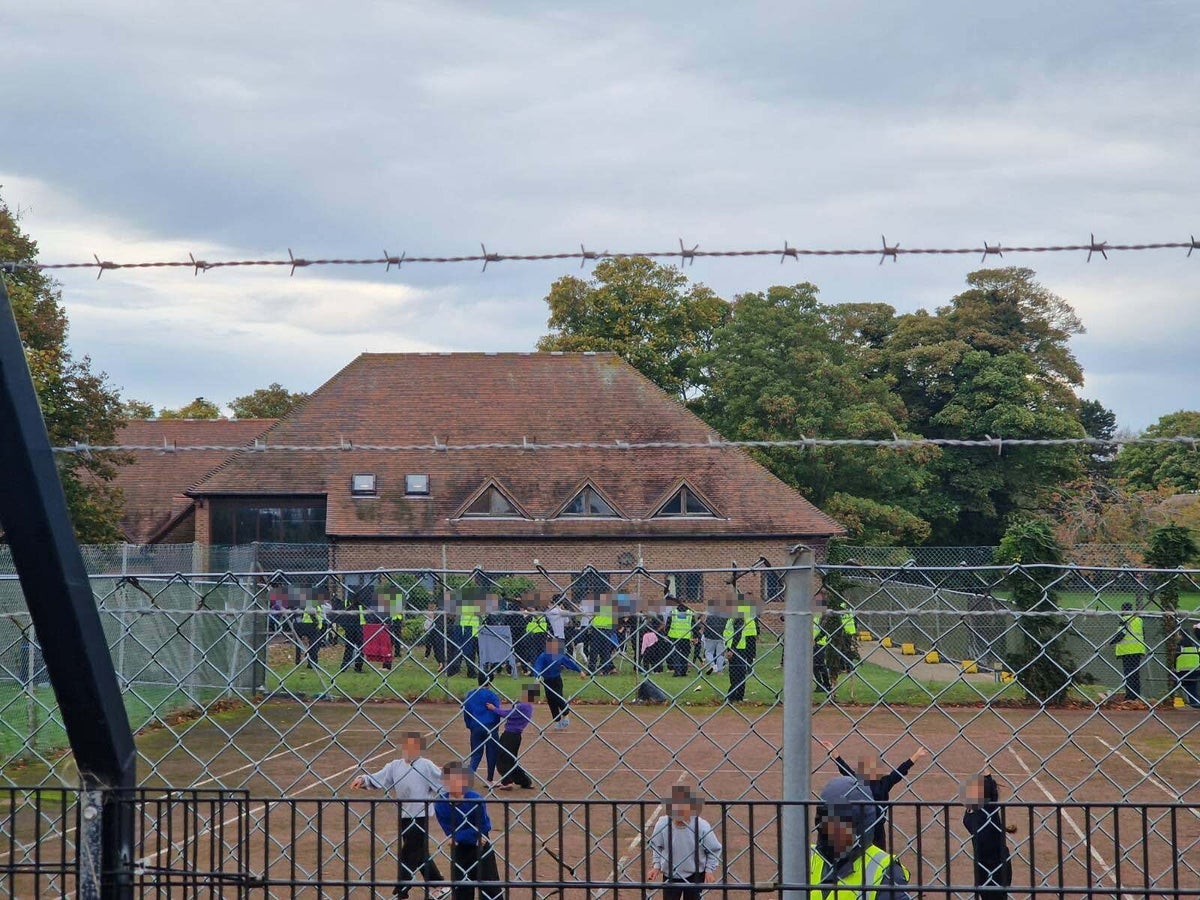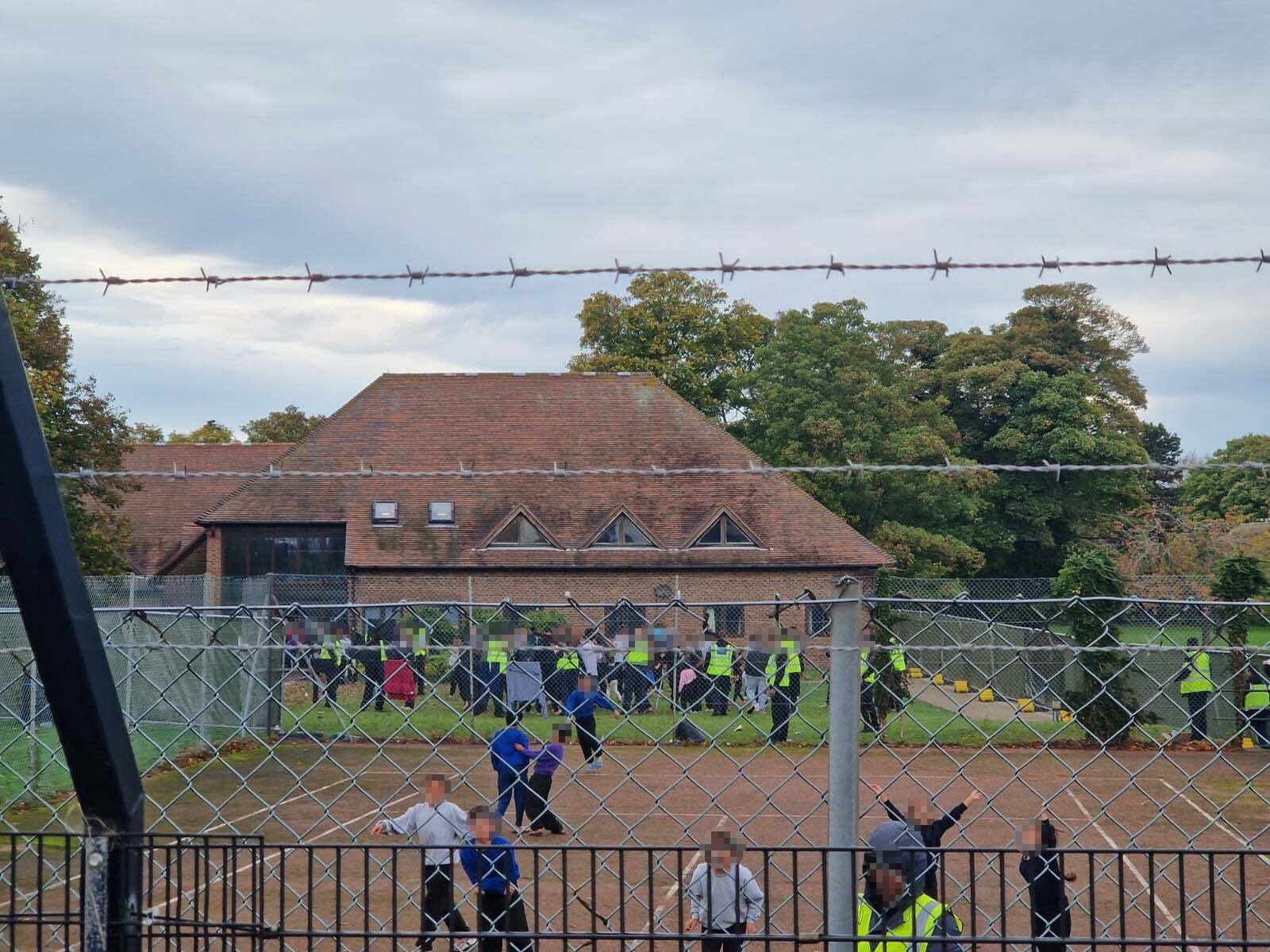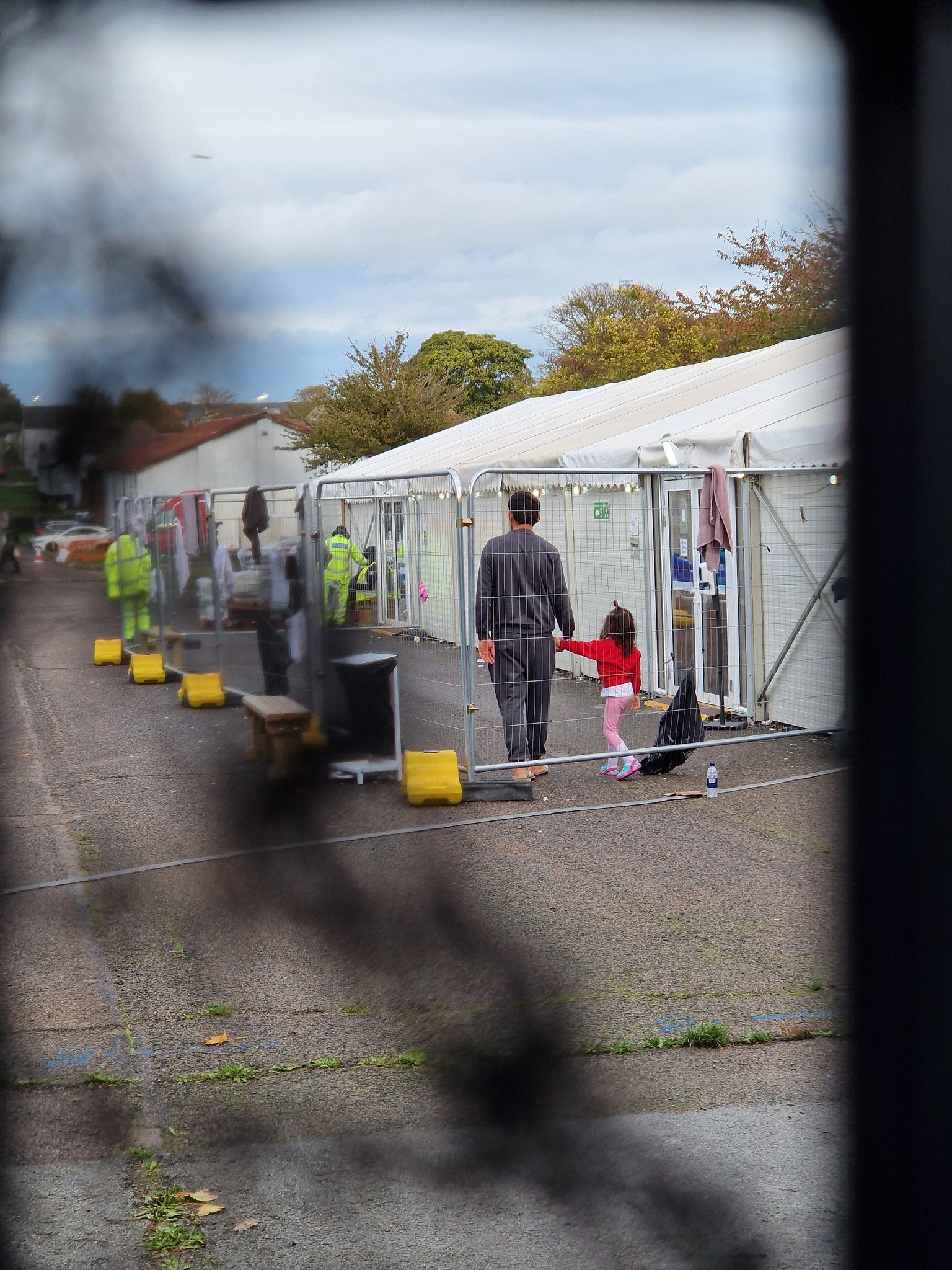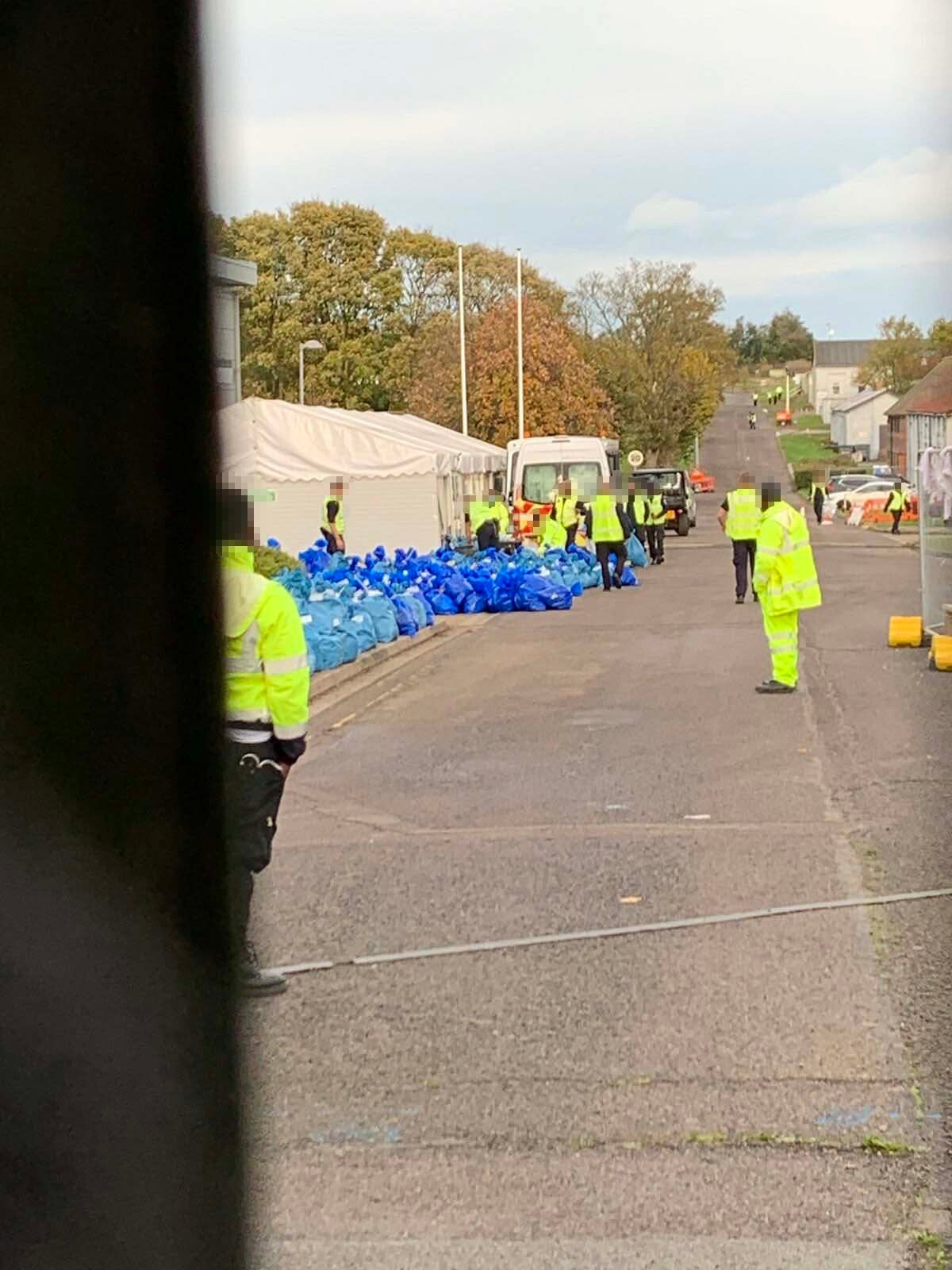
Unaccompanied asylum-seeking children have told how they were held at the government’s Manston processing centre for 19 days, forced to sleep sitting up due to lack of space, and developed scabies at the overrun site.
Asylum seekers should only be held at the site for 24 hours but the short-term facility has turned into a “humanitarian crisis on British soil” because the Home Office has failed to book appropriate hotel accommodation.
One 16-year-old from Sudan told how he would use leftover food boxes as a sleeping mat and said that he wasn’t given a change of clothes for the first 18 days he was there, despite his clothes being damp from the Channel crossing.
He said his mother thought he had died because he wasn’t allowed his phone to contact her while at Manston, in Kent. Another unaccompanied child from Iraq claimed that he was only given only a small burger for his first day and a half and was shouted at for asking for more food.
The children were originally treated as adults by border officials but are mostly now in local authority care. In one case, the child is still in a hotel having only been let out of Manston three days ago. The accounts, collated by the Refugee Council and Humans for Rights Network, also reveal concerns about disease control at the site where scabies and diphtheria cases have been reported.
In a recent visit to the centre, 150 people were sleeping on a plywood floor of a marquee with only a few heaters, Andy Baxter, assistant general secretary of the Prison Officers’ Association (POA), told The Independent.
Mr Baxter said he was concerned that residents at Manston were being detained illegally and said the POA would be writing to the Home Office to make sure its members have no personal liability when carrying out government policies.
The Home Office said it had not been able to investigate the “unsubstantiated claims” but took all allegations extremely seriously.
On Saturday, there were 3,007 asylum seekers recorded at Manston but that peaked at around 4,000 over the weekend. Some people have been held there for up to 32 days.

One 16-year-old, who arrived in the UK on 9 October, claimed: “They told us several times: ‘You are in a prison and you do not have the right to choose what you eat, and you must eat what we offer you’.”
The boy said that he was suffering from severe headaches and vomiting but could not get access to a doctor. He added: “Whenever I went to register my name to see the doctor they say you have to be patient, we only have one doctor and the number is very big.
“Especially [since] a skin disease spread during my stay and I was very afraid of getting infected with it.”
He said he was “very afraid” at the camp. “I remember the torture I suffered in Libya in the camps, in which I was detained with my older brother. Every day in this centre, I slept and cried. I asked them from the first day to return my phone to call my mother and tell her that I arrived and I am safe, but they refused,” he said.
“You must help them,” he said, adding that people inside Manston need medical care and there are few warm places to sleep.
One age-disputed child from Iran, who left Manston in early October, claimed he was pressured into changing his age when he arrived in Dover.
“They told us, ‘you need to change your date of birth’ to make us older. ‘If you do make your date of birth older, then we’ll put you on the bus and you’ll go straight away’,” he said.
“Because I was struggling, I was very cold, I told them whatever you decide to put me, they should do it, I just wanted to get out. They made me older and after that, they took me to Manston and there was 150 or 200 people there. There was not enough space to sleep, not enough food, we were sitting all night.”
He continued: “I got scabies in this place and I showed [it] to the doctors. They just told me not to scratch it. After that, they took me to a hotel near Heathrow.
“The worst place was Manston,” he said.

One Iraqi, aged under 18, who had been at Manston claimed he was not given food for a day and a half and was then only given a single burger.
“Sometimes they gave me a biscuit, and when I asked for something more, they were shouting at me and telling me off,” he said.
“They kept me in a room by myself for three days, they told me I had coronavirus, but it wasn’t true, I didn’t have coronavirus. I had some spots and they told me it was a sign of coronavirus.”
He continued: “I wish that nobody else should experience what we experience.”
There have been reported cases of scabies, diphtheria and MRSA at the site and there have also been reports of unrest at the centre. In one recent 24-hour period, 17 use-of-force interventions took place. These can range from a member of staff taking a resident’s arm to them applying restraint techniques.
Mr Baxter said that number of interventions should raise “alarm bells” and residents had fashioned weapons out of toothbrushes and cutlery, likely for their own protection.

Manston now has eight confirmed cases of scabies, and another case who was moved from the camp tested positive for diphtheria, Mr Baxter said, and the POA is calling for mandatory testing of detainees on arrival and departure.
Home secretary Suella Braverman said on Monday that she was working “energetically” to find alternative sites for asylum seekers following reports of overcrowding at Manston.
“I’ve held regular operational meetings with frontline officials, and have been energetically seeking alternative sites but I have to be honest, this takes time and there are many hurdles.
“I have never ignored legal advice, as a former attorney general I know the importance of taking legal advice into account,” she said.
A Home Office spokesperson said: “The safeguarding and welfare of unaccompanied asylum-seeking children is our utmost priority.
“Children are at risk when asylum-seeking adults claim to be children, or children are wrongly treated as adults. All those who claim to be unaccompanied children are age assessed by officials. Suggestions that Border Force officials asked asylum seekers to lie about their age are baseless speculation.”






